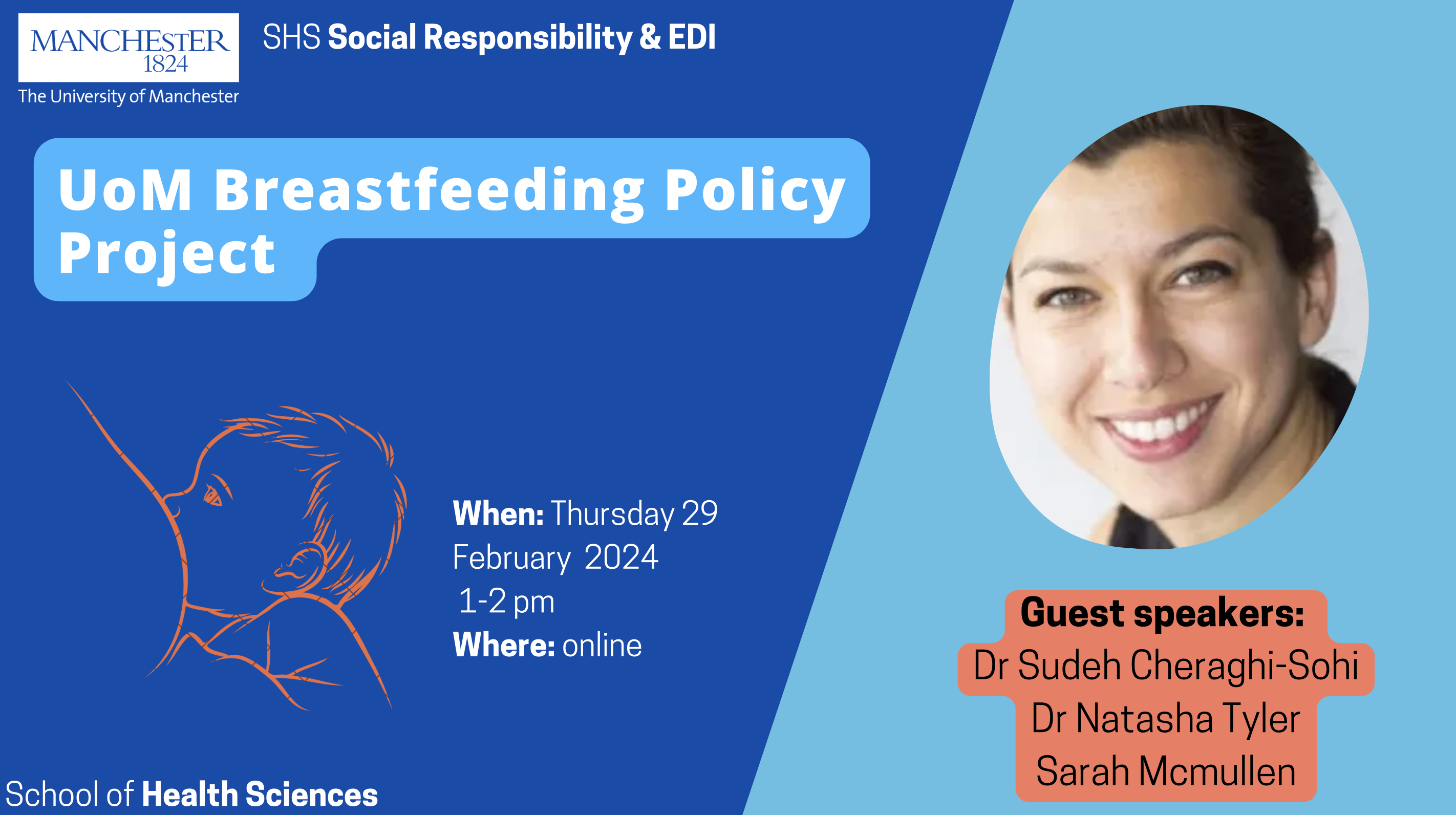Breastfeeding and work: the juggles and struggles – SR EDI Seminar February 2024

I have been a post-doctoral researcher now for 12 years and in that time I have also had two children, both of which I breastfed. I took the full period allowed for maternity leave and so when I returned to work my children were both over a year old. I was still breastfeeding and wondered how I would manage to continue to breastfeed when I returned to work, which was still very important to me for lots of reasons. I worried about the impact of my return to work for them and myself. Would I start leaking in a meeting, would I get mastitis from feeding less, would my children be unduly upset by the changes imposed on them….?
Parenthood is full of questions and anxieties and mothers have such a lot to think about in preparing to return to work. I wanted to try and make that return for those breastfeeding a little easier by doing a small piece of research to understand what the issues are and how the university can support working, breastfeeding mothers. The Wellcome Trust had some small grants available for Equality, Diversity and Inclusion work, and with the support of two colleagues Dr Karolina Kluk-de Kort and Dr Natasha Tyler, I put an application in. We got the money and set to work. We employed a doctoral student, Sarah McMullen to conduct a series of interviews with mothers who worked at the university. In total, we spoke to 18 mothers from a variety of background and roles (Academic and Professional Support Services). We found that like me, mothers were very anxious about their return and had many worries about how they might continue to breastfeed. However, things that made breastfeeding easier were utilising flexible working arrangements and local nurseries that meant day feeds could continue. However, not all women found making flexible working arrangements easy with their line managers and not everyone’s children were in local (near to campus) nurseries. For these women, pumping breastmilk was required and issues here surrounded a lack of awareness about any existing breastfeeding spaces. If women were aware, they felt that the spaces needed improvement and a secure option to store breastmilk which needs to be kept refrigerated.
Our findings have been turned into a report and you can access it here. Importantly, we have fed this into the team led by Prof. Rachel Cowen University Academic Lead for Equality, Diversity and Inclusion (Gender and Sexual Orientation Equality). The team are currently putting together a draft University breastfeeding policy and our work will feed into the Athena SWAN work at the university level. We should therefore soon see our recommendations around the provision of better breastfeeding facilities and training/education for line managers as well as support for returning mothers come to fruition.
You can see a seminar on this topic here







0 Comments